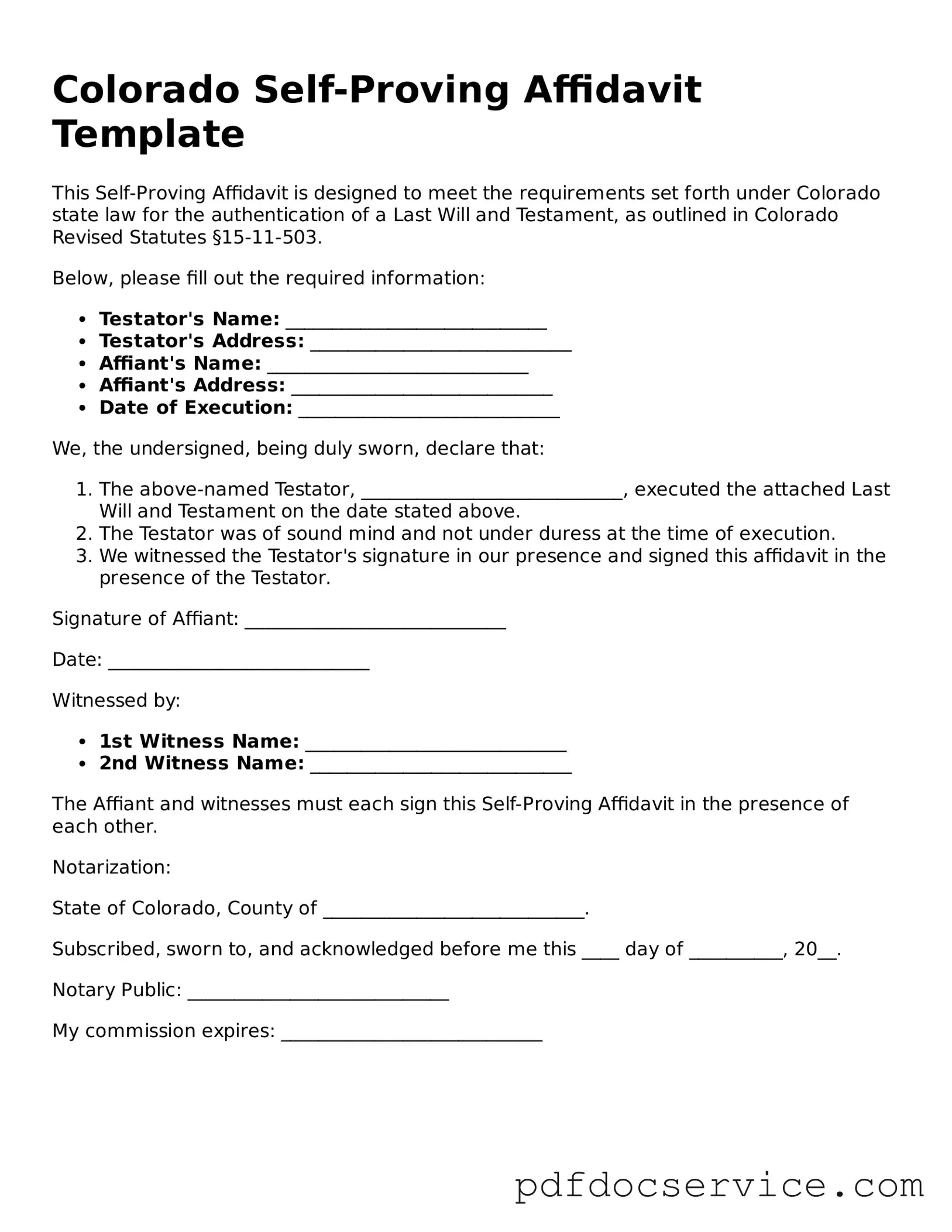Printable Self-Proving Affidavit Template for Colorado
The Colorado Self-Proving Affidavit is a legal document that allows a testator's will to be validated without the need for witnesses to appear in court. This form simplifies the probate process, ensuring that the wishes of the deceased are honored more efficiently. By using this affidavit, individuals can provide clear evidence of their intentions, making it easier for their loved ones during a challenging time.
Open Self-Proving Affidavit Editor

Printable Self-Proving Affidavit Template for Colorado
Open Self-Proving Affidavit Editor

Open Self-Proving Affidavit Editor
or
Get Self-Proving Affidavit PDF
Finish the form now and be done
Finish Self-Proving Affidavit online using simple edit, save, and download steps.